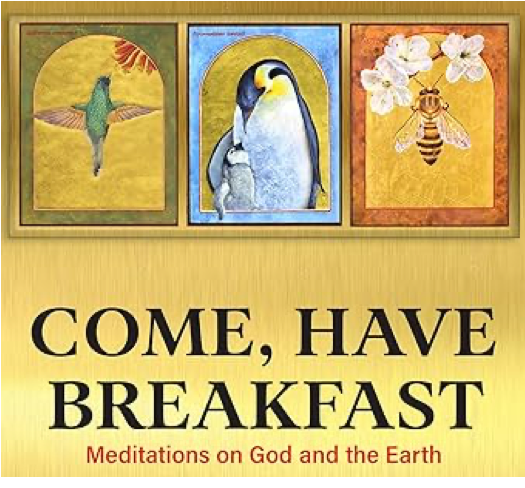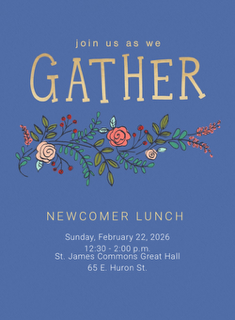The Latest Cathedral News
Lenten St. Martin's-St. James Book Group
February 11, 2026
Each Lent the Peace & Justice Committee of the Diocese of Chicago selects a book for the whole diocese to study for Lent. St. Martin's and St. James choose to study this book and discuss it together via Zoom.
This year's book is Come Have Breakfast: Meditations on God and the Earth, a text on Eco-justice and Creation Care, by Jesuit theologian and Professor Emerita of Fordham University, Elizabeth A. Johnson.
We will meet on Zoom at 6:00 PM on Thursdays:
February 26 - discussing the introduction through chapter 7
March 12 - discussing chapters 8 through 20
March 26 - discussing chapters 21 through 30
Please email the office to receive the Zoom link to the meetings
The book is available for purchase in paperback, e-book, and audiobook, or available to borrow from the St. James or St. Martin's libraries.
More information about One Book, One Diocese can be found here.

Book Group Tuesday, March 3 at 6:30 p.m.
February 09, 2026
The St. James Book Group will meet on Tuesday, March 3 at 6:30 p.m. in Room 210 at 65 E. Huron. The book for March's meeting is “Tender is the Night” by F. Scott Fitzgerald. If you have questions, please contact Marcy.

Newcomer Lunch Sunday, February 22, 12:30 p.m.
February 04, 2026
If you are new or "newish", you are cordially invited to join other newcomers as well as people who have been around for a while for lunch and conversation on Sunday, February 22 from 12:30 until 2:00 p.m. Look for your Evite invitation if you’ve submitted a Welcome Card, or email Laura Jenkins to let her know you'll attend. In your RSVP, please indicate if you have any dietary restrictions and if you will need childcare during the event.

